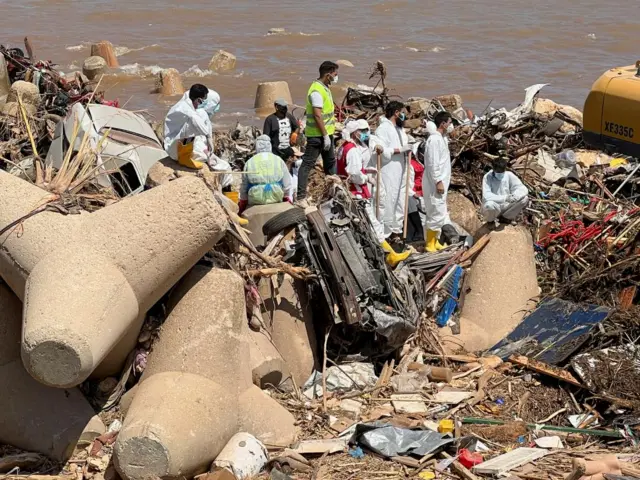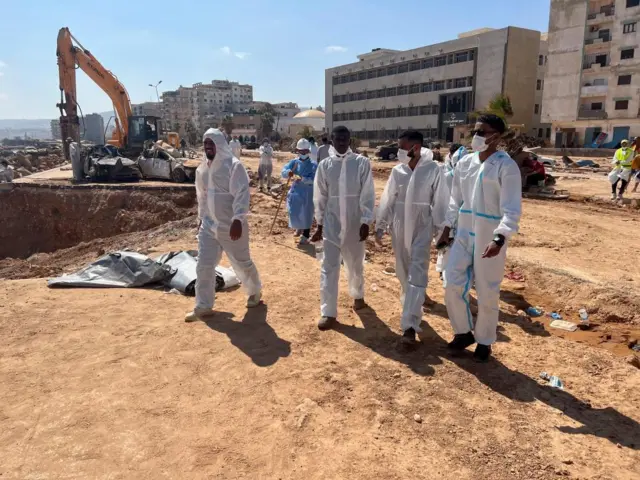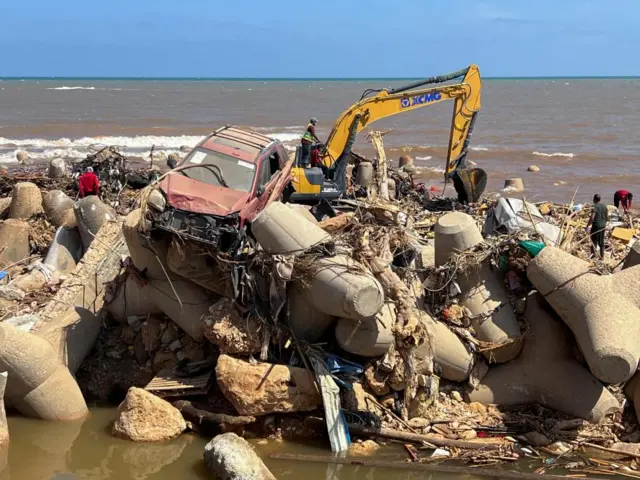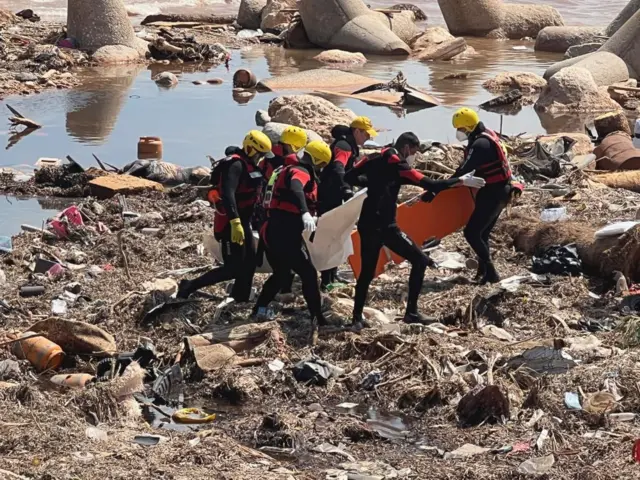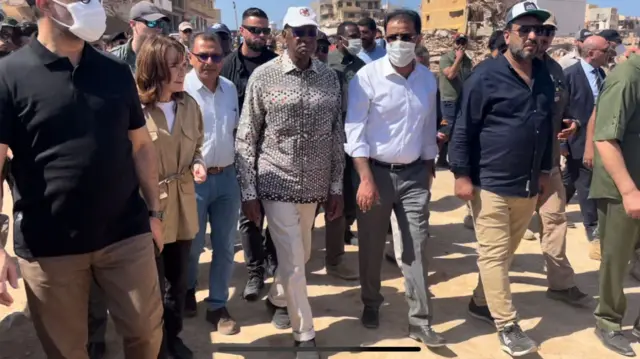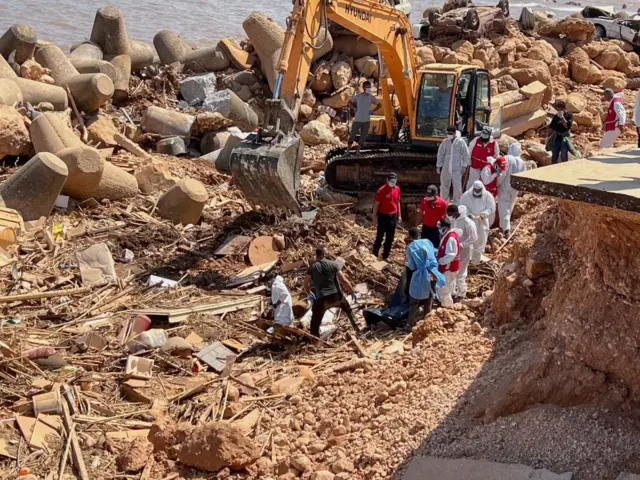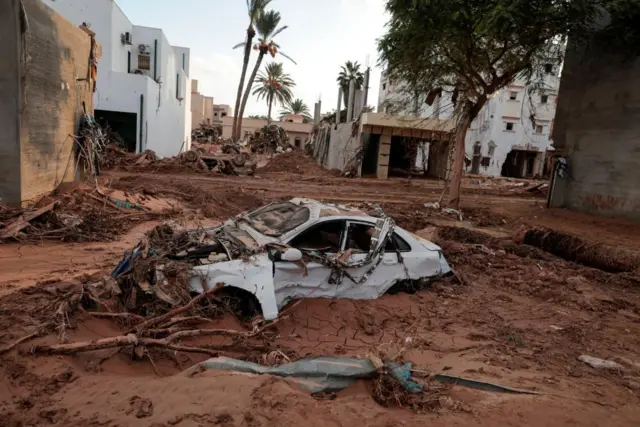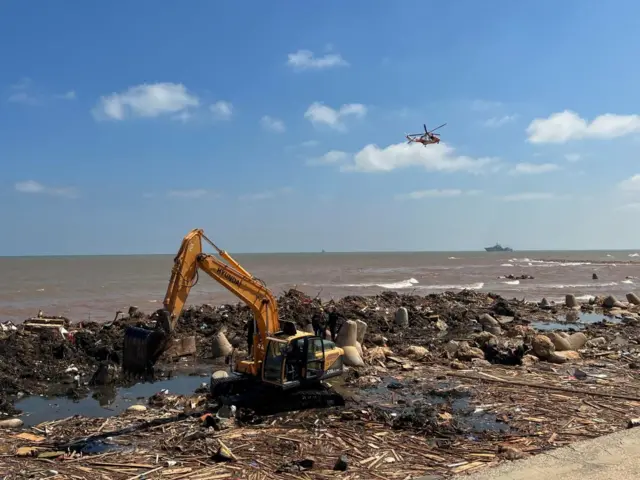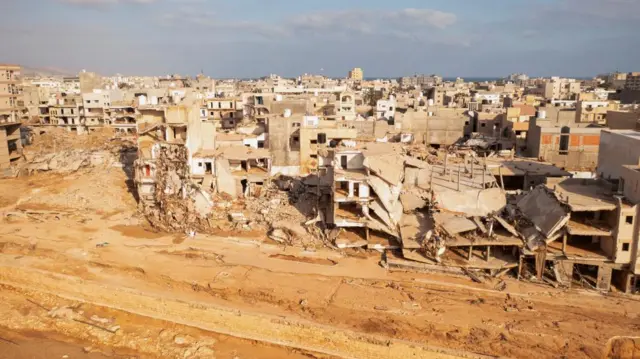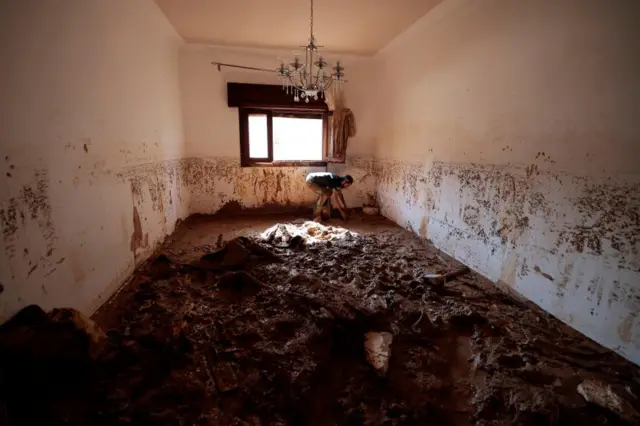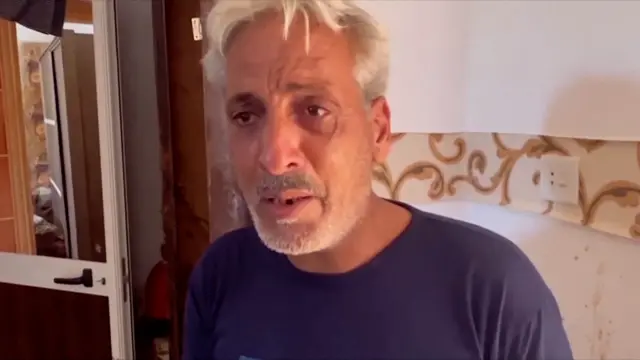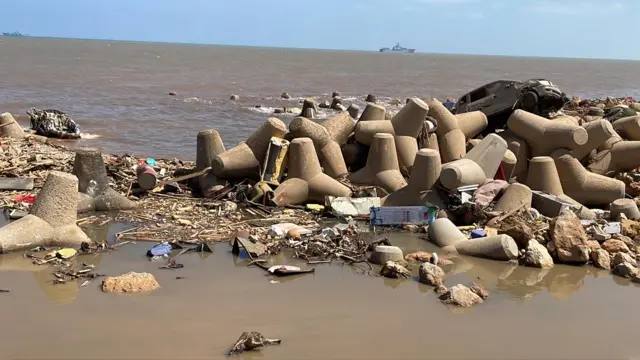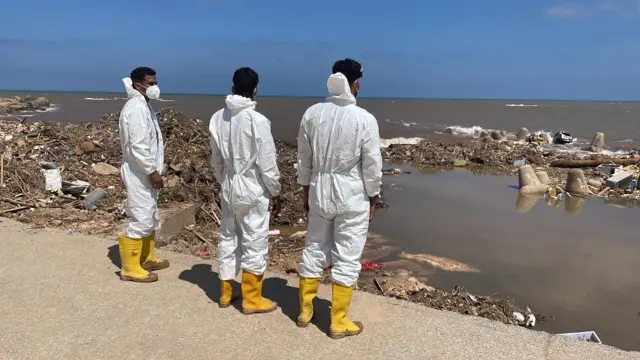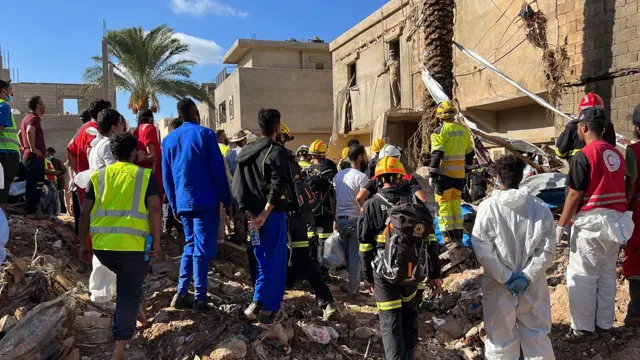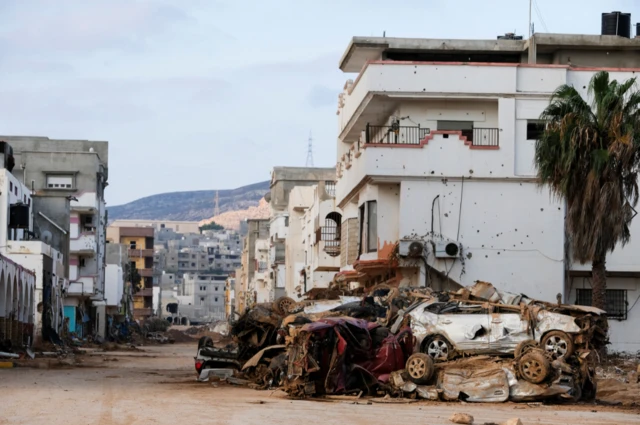Thank you for joining uspublished at 16:51 BST 16 September 2023
We are ending our live coverage of the aftermath of the devastating floods in eastern Libya.
Before you go, take a look at a report from our correspondent on the ground, Anna Foster.
And if you want to find out how massive rescue operations are conducted, read more here.
Thank you for joining us. This page has been brought to you by Anna Foster and Mohamed Madi in Derna, and Jaime Whitehead, Ali Abbas Ahmadi, Samuel Horti, Siobhan Toman and Phelan Chatterjee in London.
